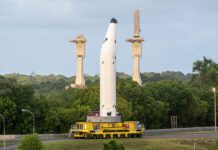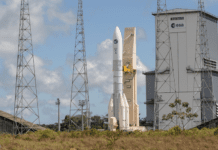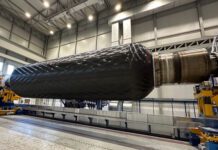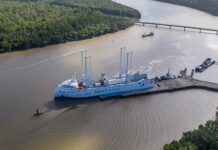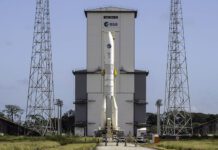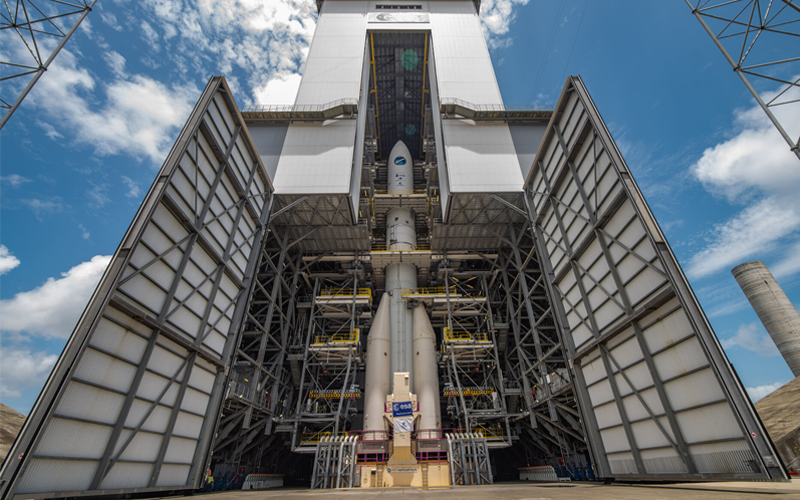
ESA announced earlier today that a short hot fire test of the Ariane 6 core stage equipped with its Vulcain 2.1 engine has been delayed. The test was due to take place on 29 August on the new Ariane 6 launchpad at the Guiana Space Centre in French Guiana.
In a short announcement on the ESA Space Transport Twitter account, the agency explained that the postponement was “due to a technical issue affecting the control bench.” The control bench manages the launcher’s propellant loading and automated countdown.
According to the statement, specialists are working on the problem. The agency is presently targeting a new test date of 5 September. A longer test firing of the Ariane 6 core stage is currently scheduled for September 26.
This is the second time the short hot fire test has been rescheduled. The agency had planned to complete the test after a wet dress rehearsal on 18 July. However, in an update published on 25 July, ESA explained that they had run out of time to complete the test.
In early August, the agency expanded on that statement, explaining that “a four-second engine firing test was aborted due to certain measurements exceeding preset limits.” The agency was then unable to reset for another attempt as the delay “led to a shortage of liquid oxygen.”
Before the short hot fire test of the core stage is conducted in French Guiana, the rocket’s upper stage, powered by a Vinci engine, will undergo its second hot fire test campaign in Lampoldshausen, Germany, on September 1. The first series of Ariane 6 upper-stage hot fire tests were conducted in October 2022.
In an 8 August update, ESA officially announced that the maiden flight of Ariane 6 had slipped from late 2023 to 2024. When in 2024 is still to be determined.

